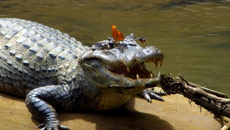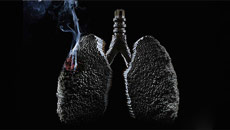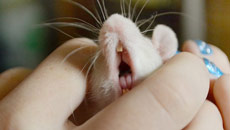Preventing disasters from volcanic eruption could soon be more effective as scientists have now come closer to developing a method to predicting volcanic eruption behaviour.
A process called frictional melting plays a role in determining how a volcano will erupt, by dictating how fast magma can ascend to the surface, and how much resistance it faces en-route, the volcanologists discovered.
“The closer we get to understanding the way magma behaves, the closer we will get to the ultimate goal: predicting volcanic activity when unrest begins,” said Jackie Kendrick of University of Liverpool in Britain.
“While we can reasonably predict when a volcanic eruption is about to happen, this new knowledge will help us to predict how the eruption will behave,” Kendrick added.
Frictional melting occurs in lava dome volcanoes when magma and rocks melt as they rub against each other due to intense heat.
This creates a stop start movement in the magma as it makes its way towards the earth's surface.
The magma sticks to the rock and stops moving until enough pressure builds up, prompting it to shift forward again (a process called stick-slip).
“Using friction experiments we have shown that the extent of frictional melting depends on the composition of the rock and magma, which determines how fast or slow the magma travels to the surface during the eruption,” Kendrick noted.
The researchers found remnants of pseudotachylyte, a cooled frictional melt while analysing lava collected from Mount St Helens in the US and the Soufriere Hills volcano in Caribbean island of Montserrat.
Evidence showed that the process took place in the conduit, the channel which lava passes through on its way to erupt.





